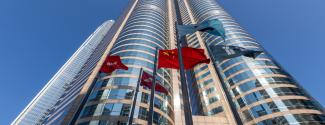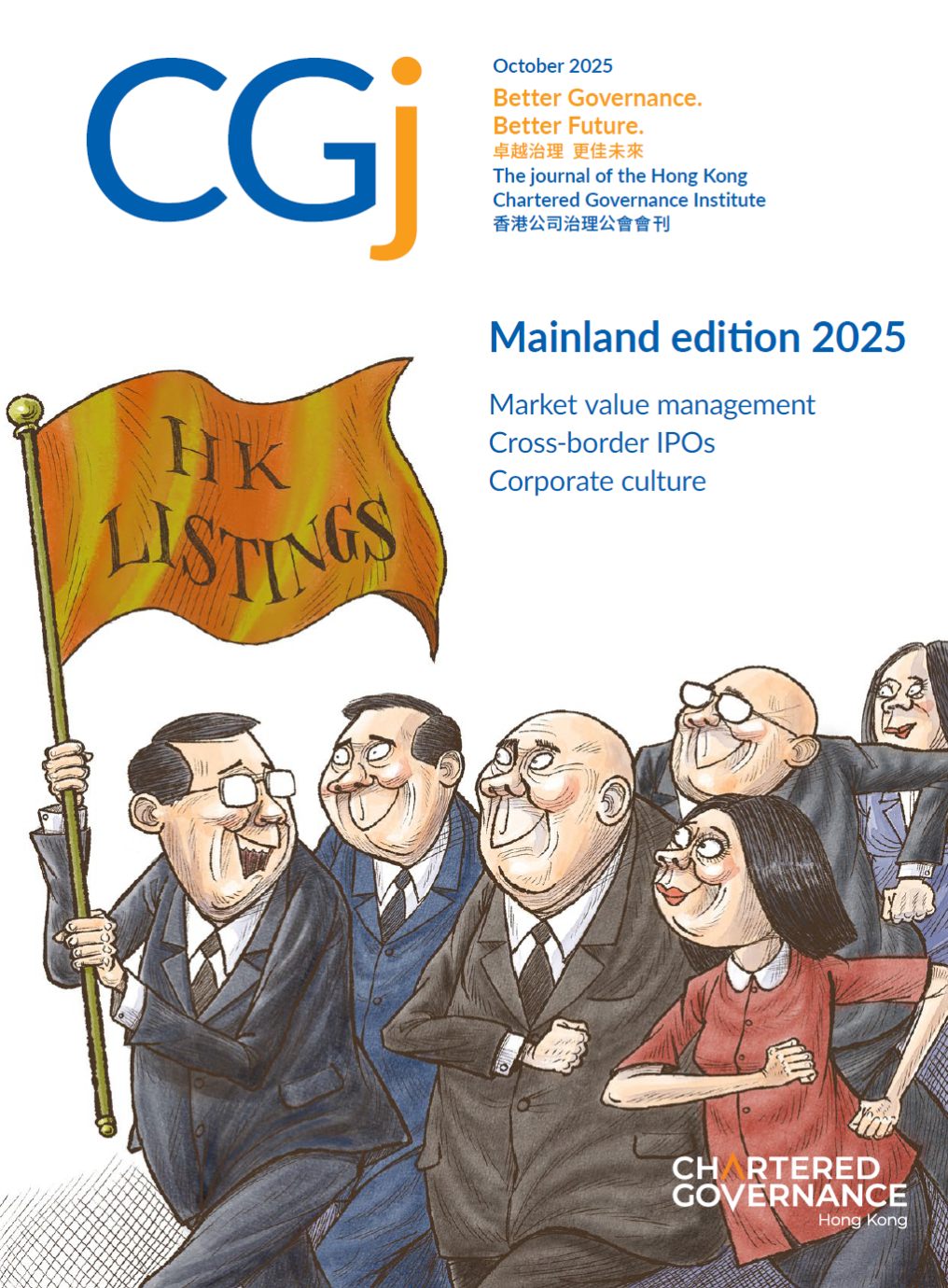
Navigating cross-border listings: financial and legal perspectives
Two seasoned professionals spoke with CGj to share their insights on the financial reporting, governance and compliance challenges faced by Chinese mainland companies pursuing cross-border listings in Hong Kong.
Highlights
- Chinese mainland enterprises are increasingly pursuing Hong Kong IPOs, driven by tightened A share financing, global market dynamics and the growth potential of emerging industries
- key challenges include aligning with international financial reporting standards, strengthening internal controls, and meeting Hong Kong’s stricter requirements on governance and director integrity
- early preparation, ranging from financial health checks to robust compliance mechanisms and effective company secretarial functions, is essential for a successful and sustainable cross-border listing
Wood Zhang, IPO Leader, China North, Ernst & Young Hua Ming LLP
With a surge in the number of companies in the Chinese mainland applying for Hong Kong listing in 2025, cross-border IPOs have once again become a market focus. What are the driving forces behind this trend, and what challenges do companies face in terms of financial reporting and compliance? Wood Zhang, IPO Leader, China North, Ernst & Young Hua Ming, has been a certified public accountant since 1999 and has specialised in listed company audits since 2000, gaining extensive experience in financial reporting and corporate governance for cross-border listings. He shares his observations on the current IPO wave and offers professional advice for companies preparing to list in Hong Kong from an accounting perspective.
‘Between January and July 2025, a total of 250 companies submitted applications to list in Hong Kong, representing a significant increase compared with the past two years,’ Mr Zhang noted. ‘The key driver behind this upswing in listings is the urgent financing and IPO needs of companies.’
Mr Zhang explained that these needs stem from a combination of factors. First, the tightening of A share IPOs and refinancing since 2023, which has prompted many companies to turn to Hong Kong. Second, the changing international political and economic environment, which has accelerated the pace of mainland companies going global. Third, the rapid development of technology sectors such as artificial intelligence and new energy, which has created fresh capital demand. And finally, expectations of US interest rate cuts, the inflow of southbound funds and the rise of new economy sectors, all of which have enhanced liquidity in the Hong Kong market.
Reflecting on previous spikes in mainland companies listing in Hong Kong, Mr Zhang observed that they had all been closely linked to macro policy shifts, such as state-owned enterprise reform, China’s accession to the World Trade Organization, property market regulation and reforms to listing rules for emerging industries. ‘This current upturn in applications for Hong Kong listings is driven both by the internal need for corporate funding, and by external changes in capital markets and the global outlook. In my view, these factors are unlikely to change in the short term, so I am relatively optimistic about Hong Kong’s market capacity.’ He expects the IPO momentum to continue well into 2026.
On financial reporting challenges, Mr Zhang pointed out that while many companies are familiar with A share accounting standards, they lack sufficient understanding of Hong Kong’s Listing Rules and the International Financial Reporting Standards (IFRS). ‘In fact, since 2006, accounting standards in the Chinese mainland have gradually converged with international standards, leaving very few substantive differences. However, in practice, there remain certain technical and conceptual distinctions that companies should be mindful of.’
For instance, under IFRS, the income statement is typically presented first and companies are allowed to choose whether to classify expenses by function or by nature. In contrast, Chinese accounting standards require functional classification and place the balance sheet ahead of the income statement. Furthermore, impairment losses on long-term assets cannot be reversed under Chinese accounting standards, whereas IFRS imposes no such restriction. Conceptually, fair value measurement tends to be applied more conservatively in China, while in international practice it is more widely accepted.
In addition, ESG disclosures are no longer considered to be merely part of non-financial information disclosure. Mr Zhang noted that with the official release of IFRS S1 and S2, along with The Stock Exchange of Hong Kong Limited’s new climate-related disclosure requirements effective from 1 January 2025, listed companies are now required to disclose both qualitative and quantitative information on how sustainability-related risks and opportunities impact their financial position, performance and cash flows. ‘ESG disclosure has effectively become an integral part of financial reporting and companies should bring in ESG advisers at the IPO stage to prepare systematically for these requirements.’
Mr Zhang stressed that companies planning to list in Hong Kong should prioritise three areas of essential learning:
1. get familiar with the financial disclosure framework for Hong Kong listed companies
2. understand the differences between Chinese and international accounting standards, and
3. gain an in-depth knowledge of Chapter 14A of the Listing Rules in relation to connected transactions.
Such knowledge, he emphasised, will not only enhance compliance, but will also help companies navigate the cross-border listing process with greater confidence and resilience.
“The key driver behind this upswing in listings is the urgent financing and IPO needs of companies.”
Wood Zhang
IPO Leader, China North, Ernst & Young Hua Ming LLP
Isaac Chen, International Partner, Haiwen & Partners LLP
With the marked increase in applications from Chinese mainland enterprises to list in Hong Kong in 2025, cross-border IPOs have once again come under the spotlight. Beyond the challenges of capital markets, the issues of legal risks and compliance readiness are equally pressing. Isaac Chen, International Partner, Haiwen & Partners, shares his observations on the current Hong Kong IPO landscape and highlights the key legal and compliance considerations for mainland companies preparing to go public.
Reflecting on recent market trends, Mr Chen notes that Hong Kong’s IPO market was relatively subdued throughout 2022 and 2023, only regaining momentum in the second half of 2024, a trend that has continued since. ‘In terms of sector distribution, Hong Kong listings are mainly concentrated in three areas: consumer goods; advanced manufacturing such as semiconductors, artificial intelligence, robotics, autonomous driving and new energy vehicles; and healthcare and pharmaceuticals. These sectors are favoured because they represent the growth potential of China’s emerging industries.’
Compared with the Chinese mainland, Mr Chen considers Hong Kong’s regulatory regime to be a hybrid model. ‘Relative to A shares, Hong Kong’s regulatory intensity lies somewhere between the US system – which focuses primarily on disclosure and class actions – and the Chinese mainland’s stringent vetting process. Provided that a company does not face material issues affecting its ability to operate as a going concern, approval is generally achievable.’
However, he stresses that, in some respects, Hong Kong’s requirements are stricter, particularly in terms of the integrity records of controlling shareholders and directors. If a controlling shareholder or a director has a history of criminal offences or administrative sanctions, the Hong Kong regulators may conclude that the company is ineligible for listing. In this regard, the threshold is even higher than that applied to A share companies.
In practice, many companies in the Chinese mainland overlook certain critical compliance issues when pursuing a Hong Kong listing. One common pitfall, Mr Chen points out, is shareholding changes. ‘Under Hong Kong’s Listing Rules, the shareholders constituting a group of controlling shareholders must not change during the full financial year prior to listing, whether by increasing or reducing their shareholdings, or by introducing new controlling shareholders. Failure to observe this requirement often delays the IPO process – in serious cases, this can be by as much as a year.’
Another frequent issue arises from misjudging the differences in compliance standards between the mainland and Hong Kong. ‘Many companies are accustomed to the regulatory approach of A shares and mistakenly assume Hong Kong will be more lenient. In reality, Hong Kong imposes stricter requirements in certain areas, such as integrity matters, and failure to align early can lead to unexpected hurdles during the application process.’
Mr Chen emphasises that completing an IPO is only the beginning – sustained compliance is the real test. ‘During the IPO process, sponsors and legal advisers provide guidance. But once listed, a company must rely on its own internal mechanisms. Without robust systems for information flow, disclosure obligations can easily be missed, leading to breaches.’
He advises companies to focus on three priorities:
1. appointing a professional company secretary with a deep understanding of the rules, practical market experience and strong cross-departmental coordination skills
2. establishing well-structured internal compliance and disclosure functions, ensuring effective communication between business units, finance and compliance teams, and
3. enhancing compliance awareness across all levels of management and staff, so that the company can operate sustainably on its own, rather than relying solely on external advisers.
Looking ahead, Mr Chen is confident about Hong Kong’s role. ‘As long as Chinese companies continue to innovate, there will be a steady stream of IPO candidates looking to list in Hong Kong. Ten years ago it was property and education, a few years ago it was consumer and property management, today it is semiconductors, artificial intelligence and new energy. With the rise of new industries, Hong Kong’s role as a vital gateway for mainland companies to access international capital remains irreplaceable.’
“In reality, Hong Kong imposes stricter requirements in certain areas, such as integrity matters, and failure to align early can lead to unexpected hurdles during the application process.”
Isaac Chen
International Partner, Haiwen & Partners LLP


